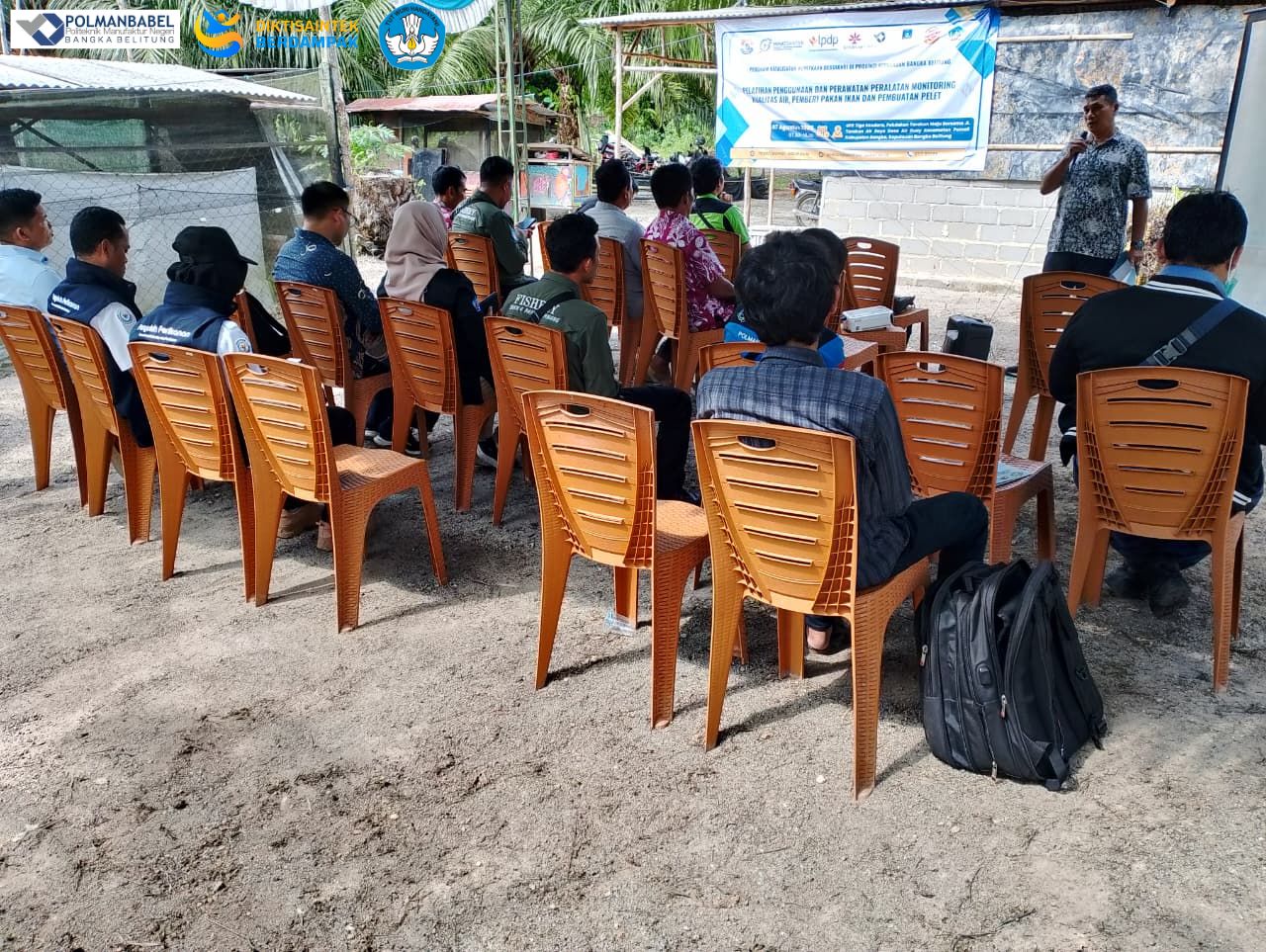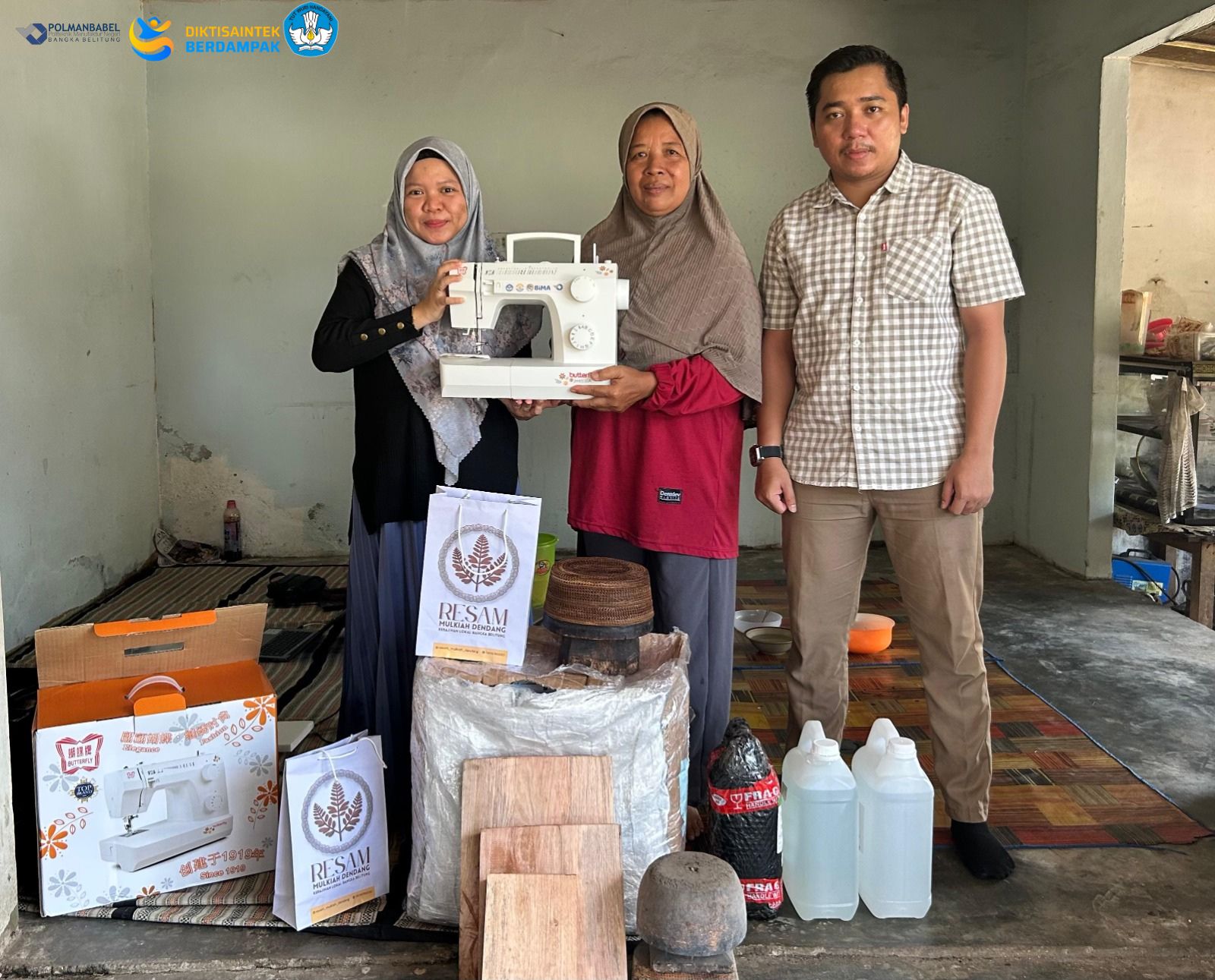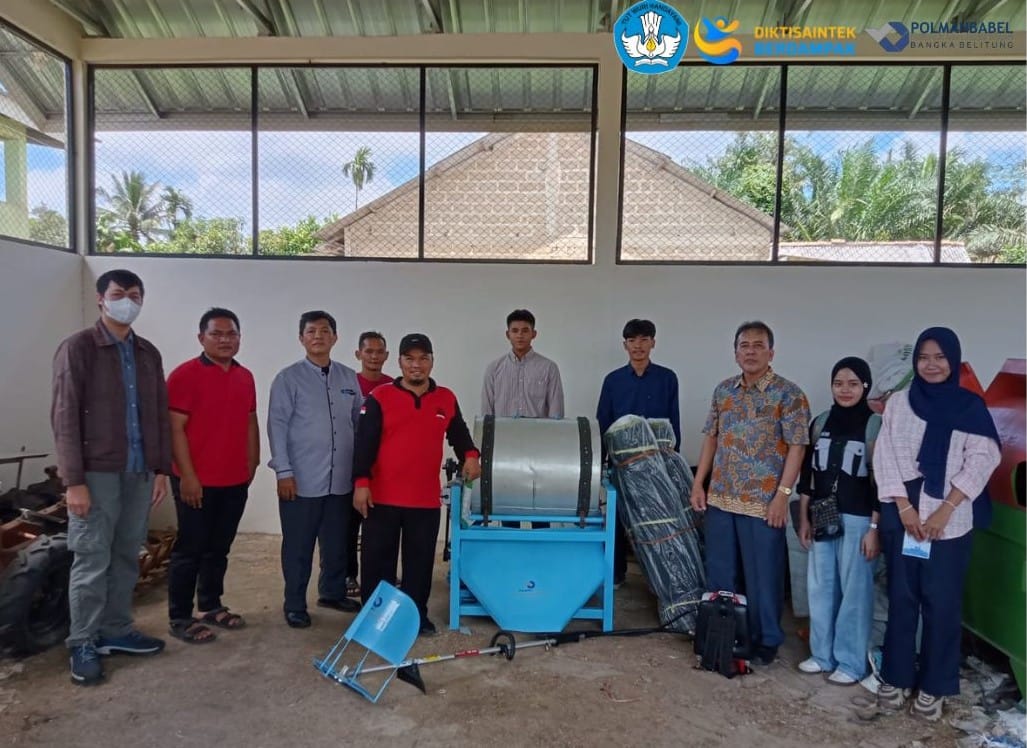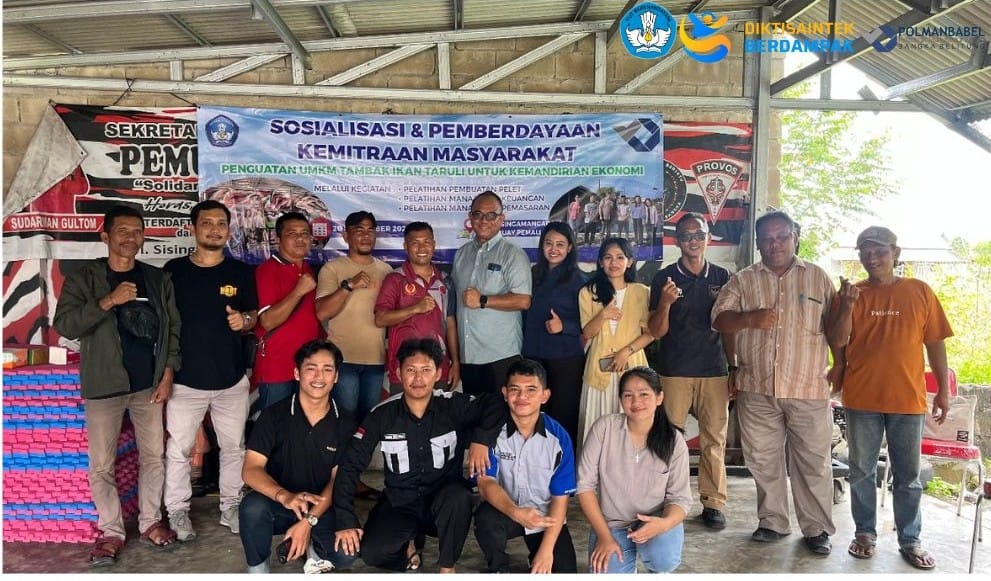Lecturers at the Babel State Polytechnic Strengthen Fisheries Training Through IoT-Based Automatic Water Monitoring Tools
To strengthen the implementation of the Tri Dharma of Higher Education, lecturers from the Bangka Belitung State Manufacturing Polytechnic (Polman Babel) conducted training on the use and maintenance of modern fish farming equipment. The training took place at the Tiga Saudara Community Hatchery Unit (UPR) of the Tarakan Maju Fish Farming Group (Pokdakan), Air Ruay Village, Bangka Regency, on Thursday (August 7, 2025).
The lecturers involved included Eko Sulistyo, M.T., Indra Dwisaputra, M.T., Dewi Tumatul Ainin, M.Sc., Ocsirendi, M.T., Juanda, M.T., Harwadi, SST., M.Ed., Zanu Saputra, M.Tr.T., and Ramli, Ph.D., along with support from PLP staff and technicians. This cross-skilled collaboration ensured the training ran smoothly and efficiently, providing the community, particularly fish farmers, with the opportunity to familiarize themselves with and practice the water quality monitoring equipment developed by the Polman Babel research team. This technology is designed to facilitate monitoring of water conditions to optimize fish farming results.
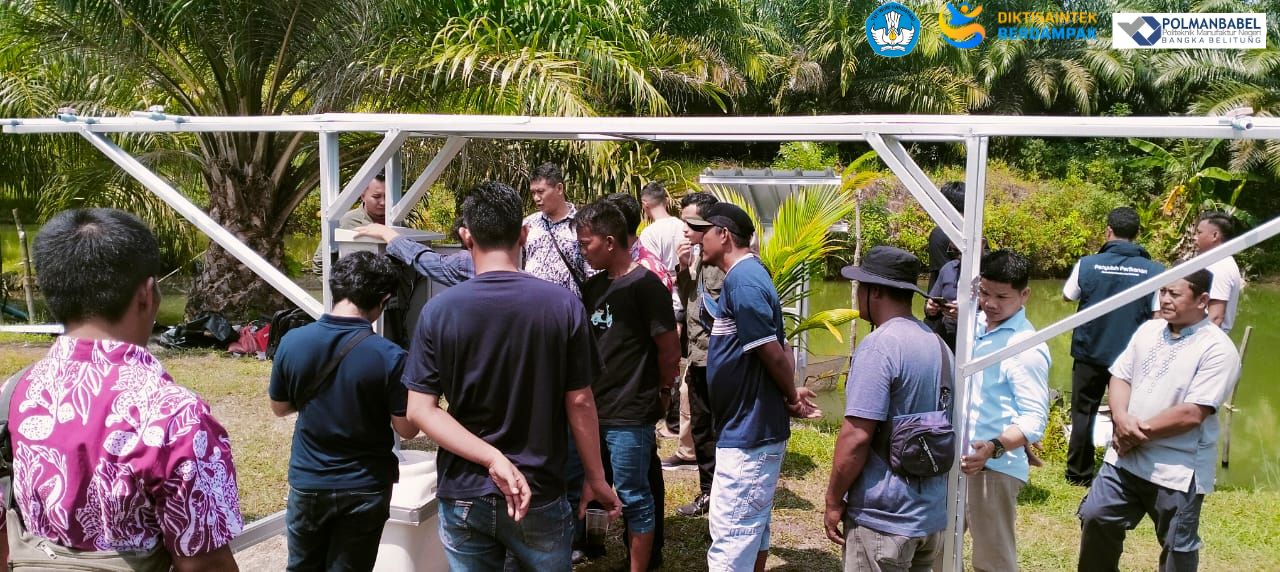
When confirmed again on Tuesday (September 30, 2025), the Head of the Research Team, Eko Sulistyo, M.T., explained that this program is not just technical training, but also a tangible manifestation of the university's contribution to the community, who can directly experience the benefits of campus innovation. "This ensures that technology doesn't stop in the laboratory but truly addresses field needs," he said.
He added that this water quality monitoring equipment can detect changes in pH, dissolved oxygen levels, and temperature. Data can be monitored in real time, stored in the cloud, and downloaded for further analysis. This allows farmers to make faster decisions to maintain the quality of their fish farming.
"In addition to theoretical material, the training also included practical field operations. Lecturers, along with PLP staff and technicians, assisted participants in operating the equipment, from installation and sensor calibration to routine maintenance. This hands-on approach made the training feel practical and easy to understand," he said.
Furthermore, various stakeholders were in attendance, including representatives from SMK Negeri 4 Pangkalpinang, the Pinang Raya Fish Farming Group (Pokdakan) in Pinang Sebatang Village, the Bangka Regency Fisheries Office, and local fisheries extension workers. The discussions covered a variety of issues, from operational costs and sensor accuracy to strategies for utilizing abandoned mine pits for fish farming.
According to one participant, the introduction of this water quality monitoring technology has opened new horizons. "We've relied on experience and estimates. With this tool, cultivation results can be more measurable and efficient, and participants can clearly see the results when they try the equipment directly in the cultivation pond," he concluded.
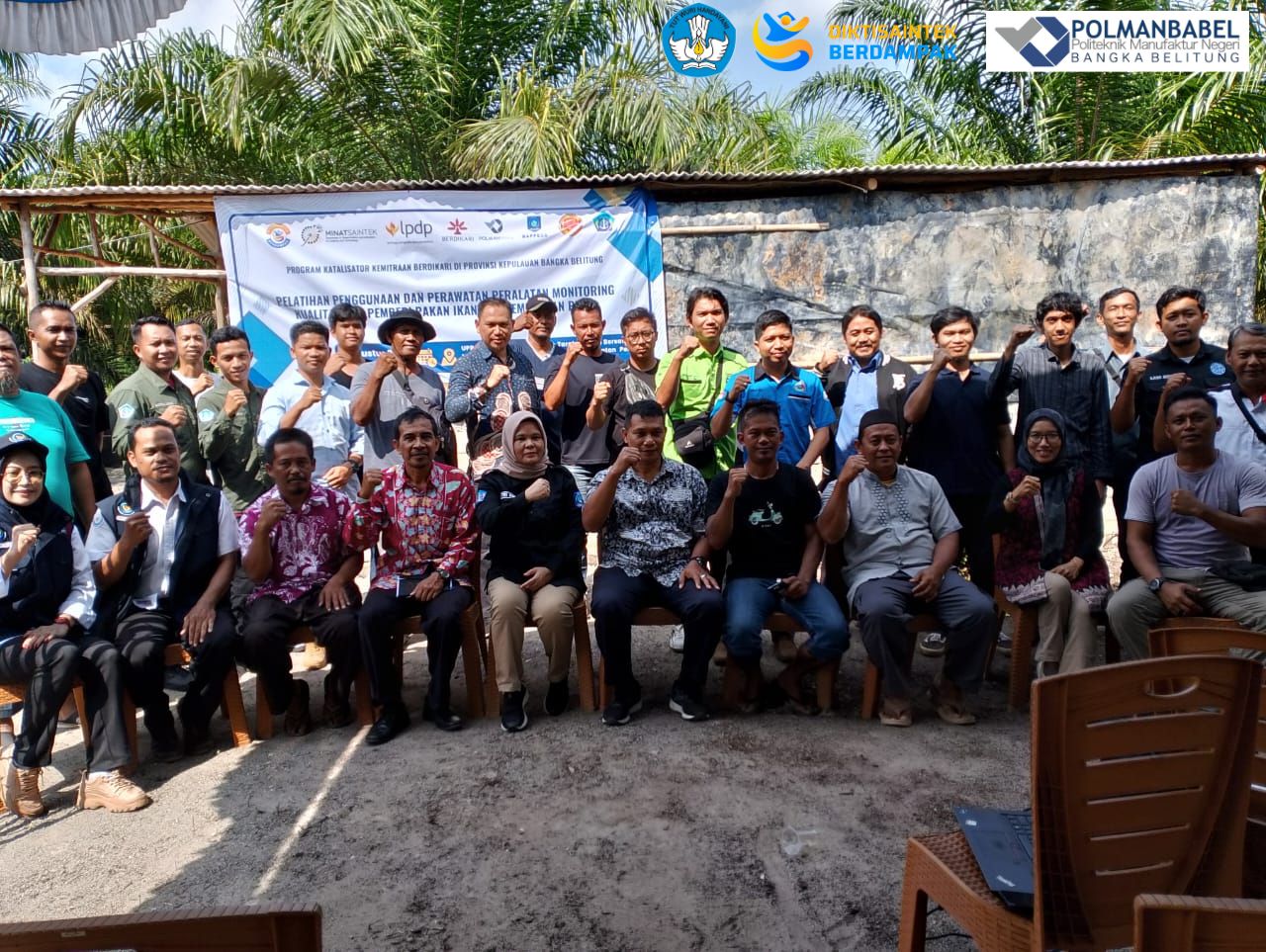
In closing, Indra Dwisaputra, M.T.S., a member of the research team, symbolically handed over monitoring equipment to the UPR Tiga Saudara, Tarakan Maju Fish Farming Group (Pokdakan Tarakan Maju), so that the technology could be optimized to increase fish production capacity and boost the community's economy.
"Hopefully, this activity can become a model for the use of appropriate technology. With innovation, former mine pits can be transformed into productive land with economic value for the community," Indra concluded.
